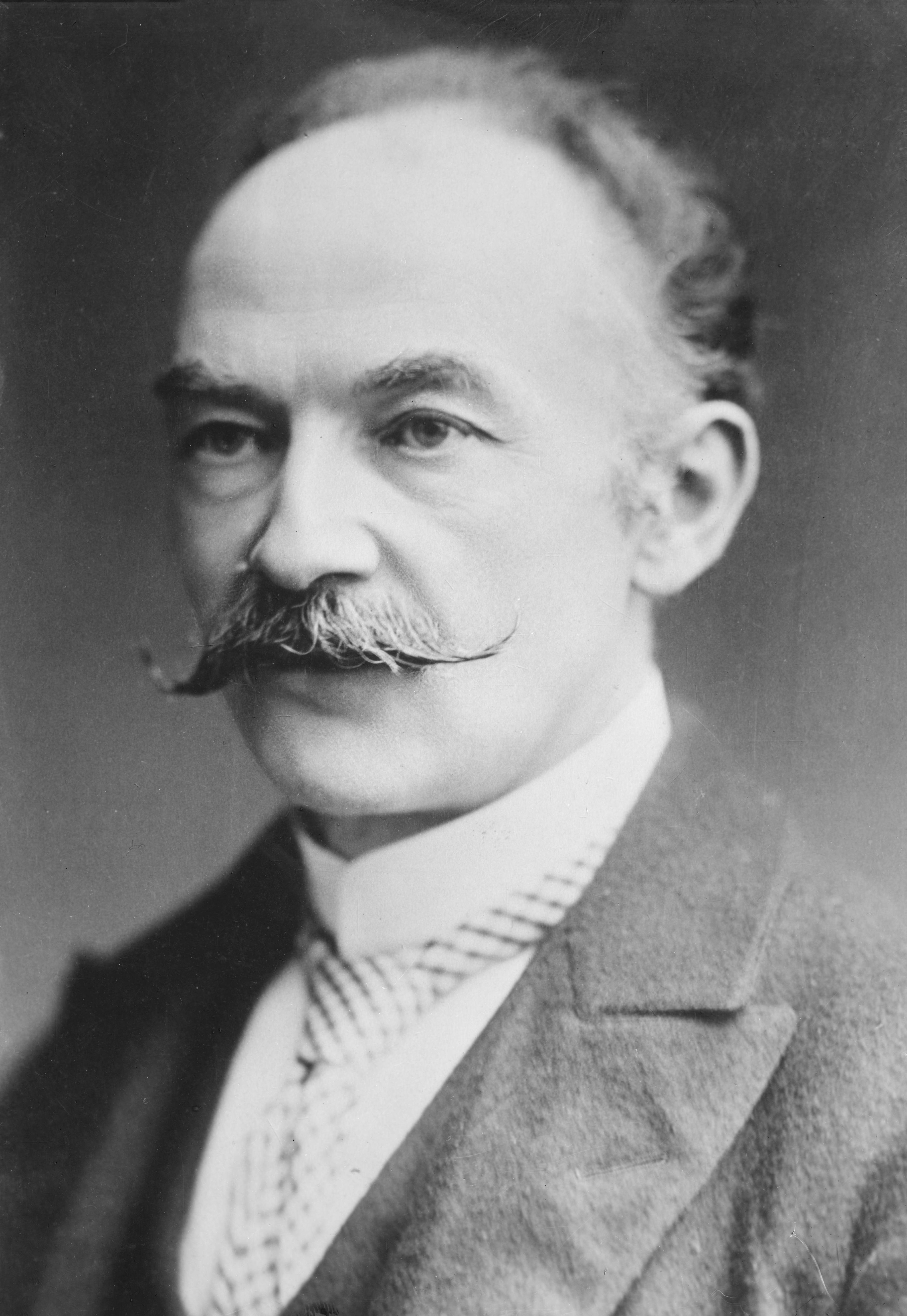Thomas Hardy słynne cytaty
Źródło: Z dala od zgiełku (ang. Far from the Madding Crowd), tłum. Róża Czekańska-Heymanowa
Thomas Hardy: Cytaty po angielsku
“These purblind Doomsters had as readily strown
Blisses about my pilgrimage as pain.”
Hap http://www.poetry-online.org/hardy_hap.htm" (1866), lines 13-14, from Wessex Poems (1898)
Phase the Seventh: Fulfilment, ch. LIX (last lines)
Tess of the d'Urbervilles (1891)
Phase the Second: Maiden No More, ch. XIV
Tess of the d'Urbervilles (1891)
“Do not do an immoral thing for moral reasons!”
Pt. VI, ch. III
Jude the Obscure (1895)
“My argument is that War makes rattling good history; but Peace is poor reading.”
Pt. II, sc. v, Spirit Sinister
The Dynasts (1904–1908)
Pt. I, forescene, Shade of the Earth & Spirit of the Years
The Dynasts (1904–1908)
“All that blooth means heavy autumn work for him and his hands.”
Źródło: The Woodlanders (1887), Ch. XIX
" The Man He Killed http://www.illyria.com/hardyman.html" (1902), lines 17-20, from Time's Laughingstocks (1909)
“You calculated how to be uncalculating, and are natural by art!”
The Hand of Ethelberta (1876), ch. 20
" Waiting Both http://www.poetryconnection.net/poets/Thomas_Hardy/9302, lines 1-5, from Human Shows, Far Phantasies, Songs and Trifles (1925)
"The Convergence of the Twain" (Lines on the loss of the Titanic) http://rpo.library.utoronto.ca/poem/916.html (1912), lines 1-3, from Satires of Circumstance (1914)
" When I Set Out For Lyonnesse http://www.poetryconnection.net/poets/Thomas_Hardy/2736" (1870), lines 1-4, from Satires of Circumstance (1914)
“A local cult, called Christianity.”
Pt. I, sc. vi, Spirit of the Years
The Dynasts (1904–1908)
" Drummer Hodge http://www.st-andrews.ac.uk/~www_se/personal/pvm/HardyBWar/pracrit.html" (1899), lines 1-18, from Poems of the Past and Present (1901)
" God-Forgotten http://www.poetryconnection.net/poets/Thomas_Hardy/16398", lines 4-8, from Poems of the Past and Present (1901)
" Friends Beyond http://www.poetryconnection.net/poets/Thomas_Hardy/16393", lines 1-3, from Wessex Poems (1898)
" The Darkling Thrush http://www.poetry-online.org/hardy_the_darkling_thrush.htm" (1900), lines 1-8, from Poems of the Past and Present (1901)
" Autumn in King's Hintock Park http://www.naic.edu/~gibson/poems/hardy2.html" (1901), lines 1-6, from Time's Laughingstocks (1909)
“Who is such a reprobate as I! And yet it seems that even I be in Somebody's hand!”
Źródło: The Mayor of Casterbridge (1886), Ch. 41
